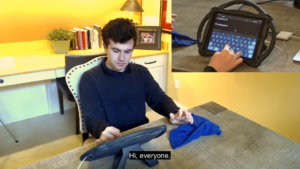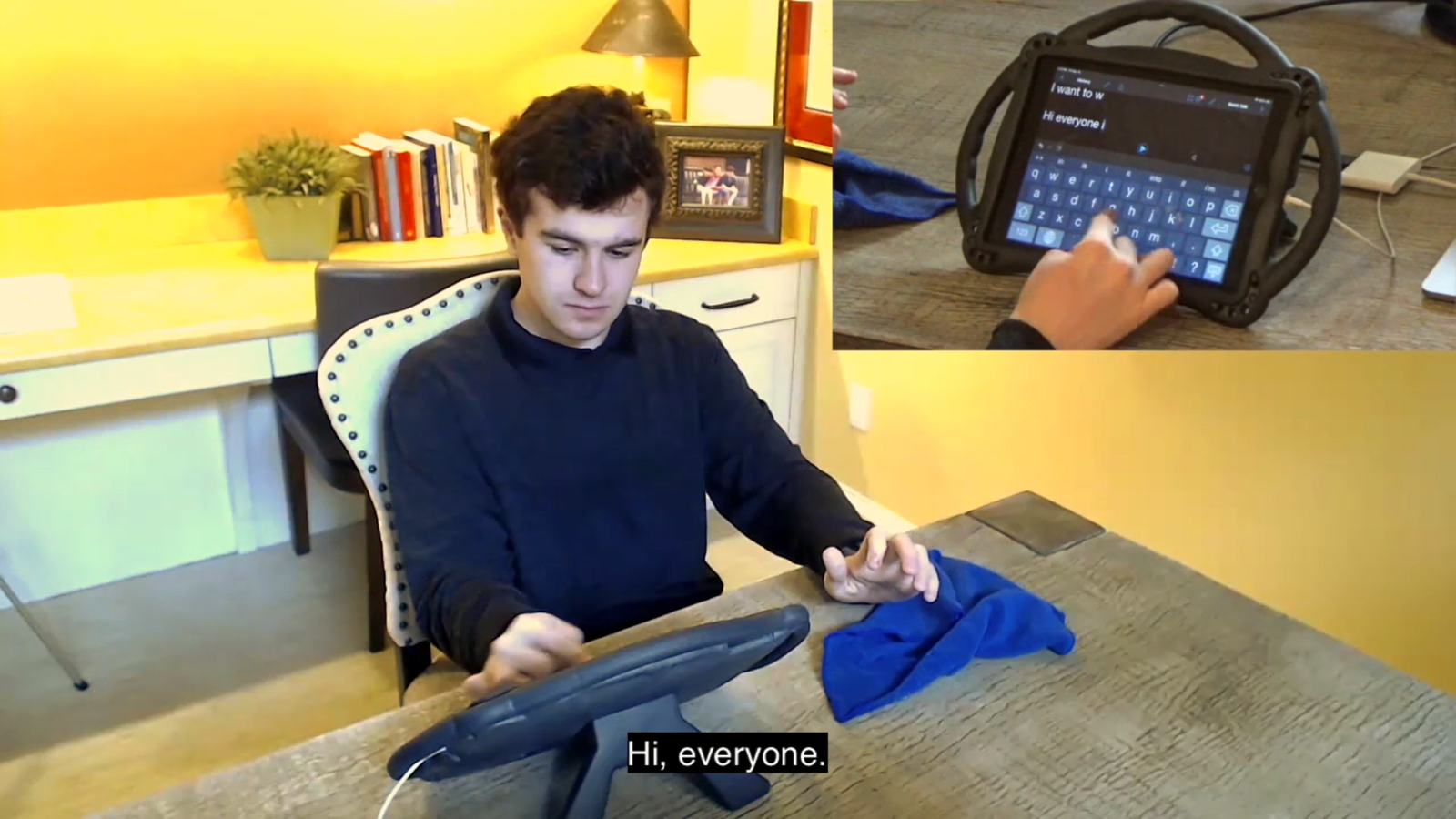 Grant Blasko, a nonspeaking autistic augmentative and alternative communication (AAC) user and member of CommunicationFIRST’s Advisory Council, expressed the following reactions the day after the US Interagency Autism Coordinating Committee (IACC) held its first meeting in years dedicated to the communication support needs of nonspeaking autistic people. A video recording of that IACC session, which took place on April 14, 2022, can be viewed under “Day 2” here. A captioned video recording of Grant typing the following thoughts can be viewed here and below. Grant’s website is https://grantblasko.com/.
Grant Blasko, a nonspeaking autistic augmentative and alternative communication (AAC) user and member of CommunicationFIRST’s Advisory Council, expressed the following reactions the day after the US Interagency Autism Coordinating Committee (IACC) held its first meeting in years dedicated to the communication support needs of nonspeaking autistic people. A video recording of that IACC session, which took place on April 14, 2022, can be viewed under “Day 2” here. A captioned video recording of Grant typing the following thoughts can be viewed here and below. Grant’s website is https://grantblasko.com/.
by Grant Blasko
Hi everyone. I want to get a few things off of my chest.
I’m instantly frustrated each time I listen to research presentations that detail how many assumptions are made about the participants, and I am also surprised that during the review process nobody calls out the obvious biases that don’t consider alternative ideas for why an apparent deficit is present.
Now, I respect the minds of many of these people, but without autistic AAC user input, they are flying blind guessing, and that is not the best strategy for accurate and helpful science.
The truth is, I know that will sting because intentions may be good because I have worked with enough scientists to know that most do not believe they know everything. However, it needs to be said so that we can move forward.
I would like to offer an example. Yesterday at the IACC meeting, we heard about the need to intervene to teach joint attention, but when I listened to how the experiment was set up by assessing how much students looked, the first thing that came to mind was threat.
There was an obvious need to consider sensory differences, but the assumptions were that joint attention needed to be taught, so the student didn’t fall farther behind.
Now, they concluded this and designed protocols to show short-term gains but never accommodate the sensory issues, so the student either learns how to cope on his own or has behaviors down the road that get in the way of learning.
Holy moly, this sounds like my childhood!
The next thing I want to share is that so many of us were traumatized by well-meaning therapists who thought their job was to provoke sensitive situations and force us to overcome the barriers.
The difference in what you can do and what you are shooting for should be about 4% improvement, according to the research in Flow.
The fact that we have communication disability and people think we should struggle to overcome it alone all day long every day is an example of highly ableist behavior.
You hear my words and see how long this takes, and theatrically, I want to make this meaningful and interesting so that it becomes clear what kind of effort it takes to write and talk with one finger.
But, I also want to plant the seed for more collaboration with scientists in the planning of research.
This has been great to get off my chest. Thanks for listening.

